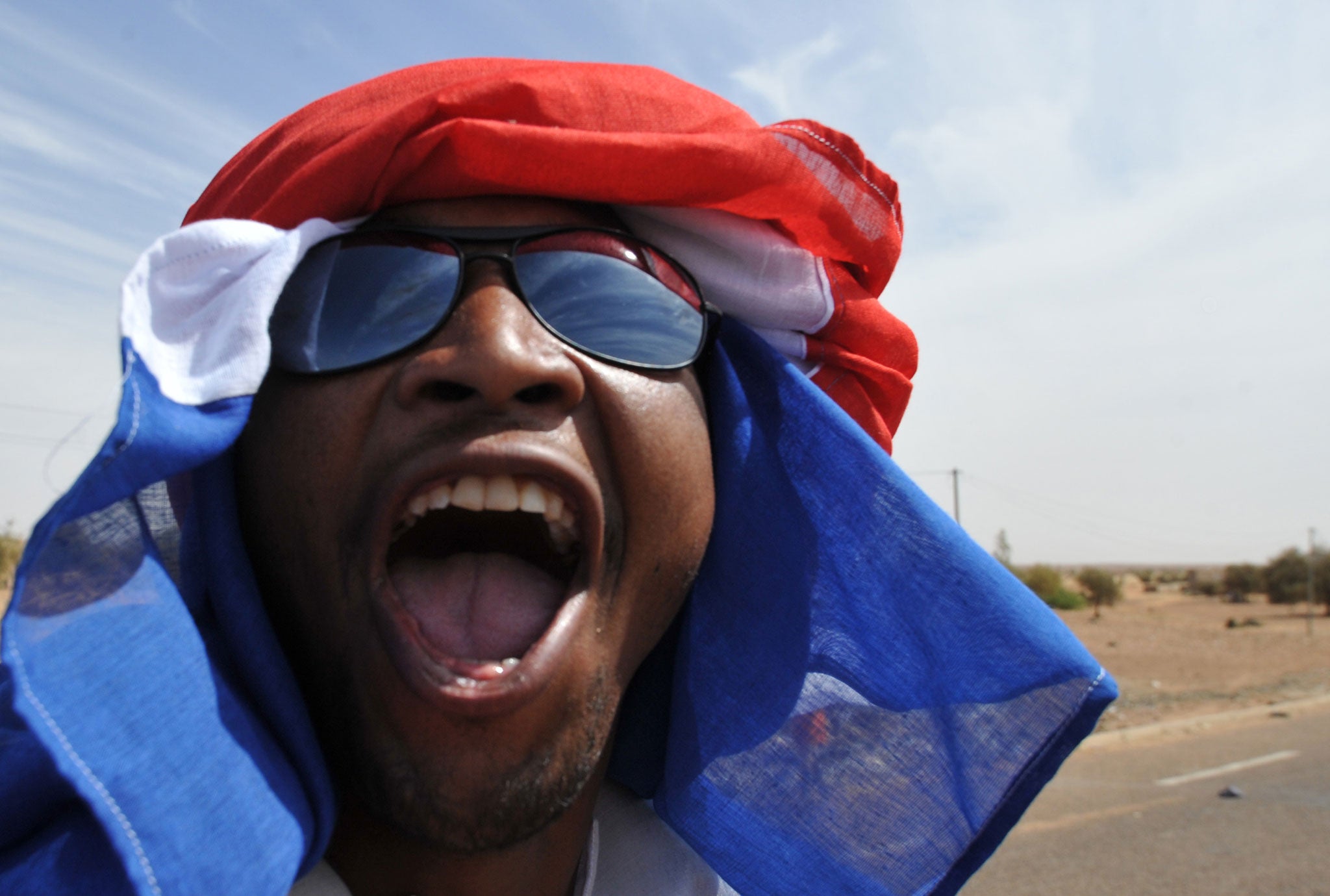French intervention in Mali is not colonialism. The Islamists really are our enemies
Too often commentators do not weigh the human cost of Western inaction

Your support helps us to tell the story
From reproductive rights to climate change to Big Tech, The Independent is on the ground when the story is developing. Whether it's investigating the financials of Elon Musk's pro-Trump PAC or producing our latest documentary, 'The A Word', which shines a light on the American women fighting for reproductive rights, we know how important it is to parse out the facts from the messaging.
At such a critical moment in US history, we need reporters on the ground. Your donation allows us to keep sending journalists to speak to both sides of the story.
The Independent is trusted by Americans across the entire political spectrum. And unlike many other quality news outlets, we choose not to lock Americans out of our reporting and analysis with paywalls. We believe quality journalism should be available to everyone, paid for by those who can afford it.
Your support makes all the difference.Two political factions have a palpable sense of sour grapes right now. If your entire raison d’etre is opposition to war, or if you regard every act of solidarity with the oppressed as a waste of taxpayers’ money, what do you say when confronted with footage of jubilant crowds singing the praises of Western military intervention in Mali?
You pretend they do not exist, of course.
Last week French forces drove Islamist rebels out of the north of Mali, where fanatics had established an African base for Al Qaeda and imposed sharia law and everything that goes with it, including amputations, the banning of music and the reduction of women to the status of chattel.
In driving out the Islamists, a French socialist politician has provided Malians with sanctuary from the fanatical whims of the Islamists; hence the celebrations. Most Malians want their lives dictated by the totalitarian edicts of religious fanatics about as much as they want lectures from Western cultural relativists about the “legitimate grievances” of those who would chop off their hands for stealing a loaf of bread. As would you; why suppose Africans feel differently?
France will likely begin the gradual withdrawal of its troops from Mali in the next few weeks, handing over responsibility for security to an African force.
For those at a safe distance from the reach of the jihadists, one can welcome the liberation of the Malian people from this stark nightmare or shrug one’s shoulders and mutter about colonialism or the expense to European taxpayers.
While it would be unsurprising to hear little Englanders denounce the involvement of British forces in Mali using the same rational they use to denounce all aid to Africa – i.e. they don’t care - the sheer number of self-appointed humanitarians willing to watch the enslavement of Malian society with equanimity is shameful.
No it is worse than that; it is utterly repulsive.
According to the Stop the War Coalition, France’s intervention in Mali is part of a “growing scramble for Africa”.
“Stop the War condemns the intervention in Mali, and calls on the government to withdraw all support immediately,” a statement reads.
First of all, anyone who wishes to understand the conflict in Mali must recognise that this is not a resource grab by the French. It isn’t anything of the sort. France and Mali already have an excellent (and consensual) trading relationship, with French direct investment in the Malian economy increasing from $210 million US dollars in 2001 to $1,093 million by the end of 2008; in 2010 Mali hosted nearly 50 subsidiaries and companies with French capital. The idea that socialist President Francois Hollande, a man who was welcomed into office eight months ago promising a 75 per cent tax for France’s rich, is embarked on a final push into West Africa on behalf of French corporations is bonkers to put it mildly.
Rather than enrich French corporations, what the intervention did do, however, was drive out of Mali some of the most unpleasant people on earth. Jihadists. People who murder women for looking at the wrong man; men who hang gay people for their sexuality; bigots who execute Jews for being Jews.
The reaction of the Malian people to the French military victory should tell you all you need to know. As Lindsey Hilsum put it in one of her excellent dispatches for Channel 4 news: “The scenes of joy and excitement as the French and Malians drove into town showed the majority of people in Gao utterly rejected jihadi rule”.
As a person of the left, I find I have absolutely no problem with that.
If you remain unconvinced, I have a quick thought experiment. Suppose for a moment those who believe that Western intervention can never be a force for good in the world were held to account for the human cost of inaction? It is deeply fashionable these days to denounce Tony Blair as a war criminal, for example, yet what about slaughters such as that carried out by the regime of Bashar al-Assad in Syria, where over 60,000 people and counting have lost their lives - at least in part because the West has decided not to intervene militarily?
Do those people not count? Or can inaction at times be as bad as intervention on the side of the aggressor and against the victim?
It is always possible of course to seek comfort in conspiracy theories whenever the West intervenes militarily, muttering under one’s breath about “blowback”, “resource grab” or “colonialism”. What one cannot do is simultaneously keep up a pretence of humanitarianism.
Sometimes intervention is wrong, and sometimes it isn’t.
In the case of Mali, Vive la France is more appropriate than all the predictable cries of "Troops Out" by the usual suspects.
Join our commenting forum
Join thought-provoking conversations, follow other Independent readers and see their replies
Comments